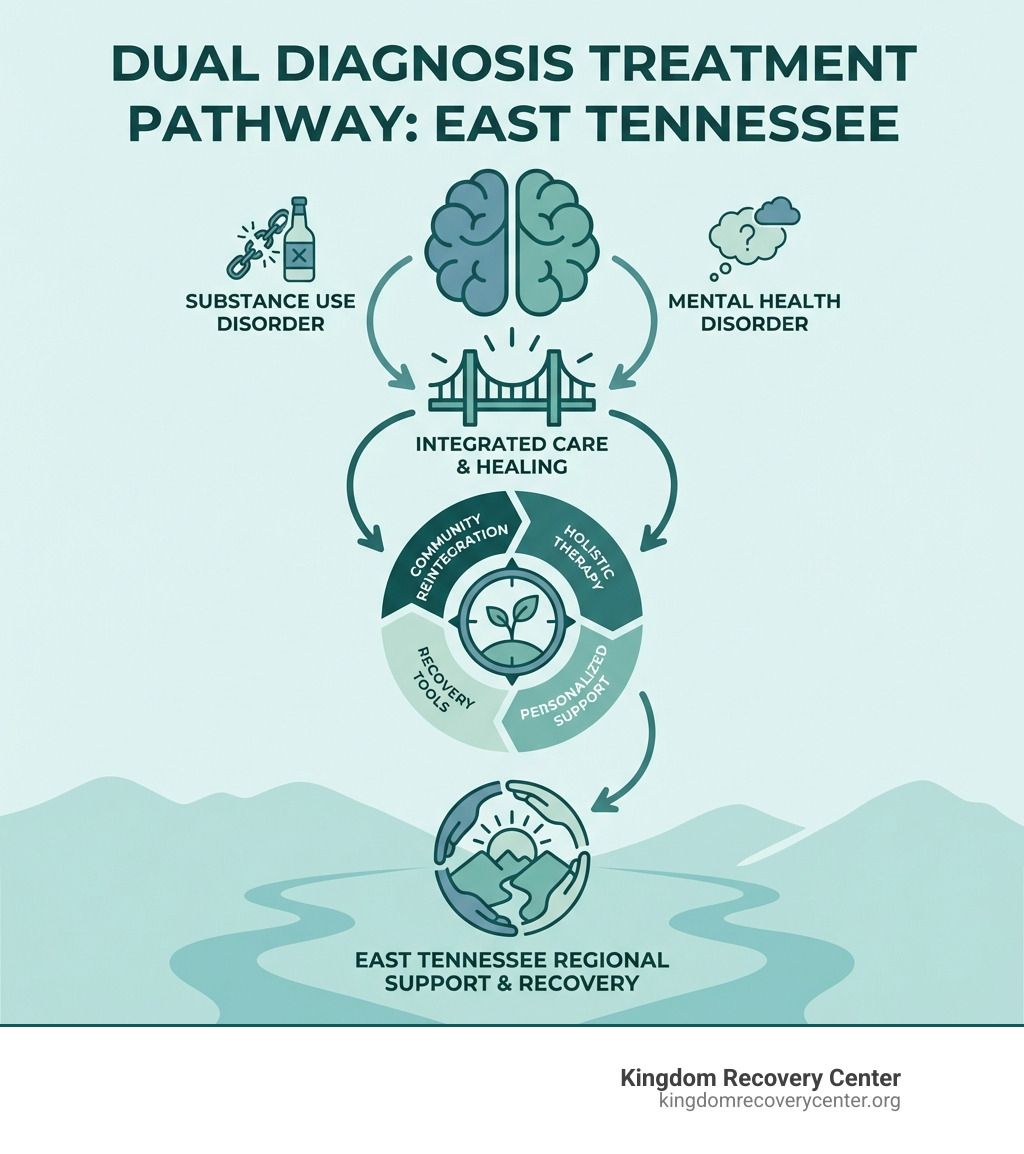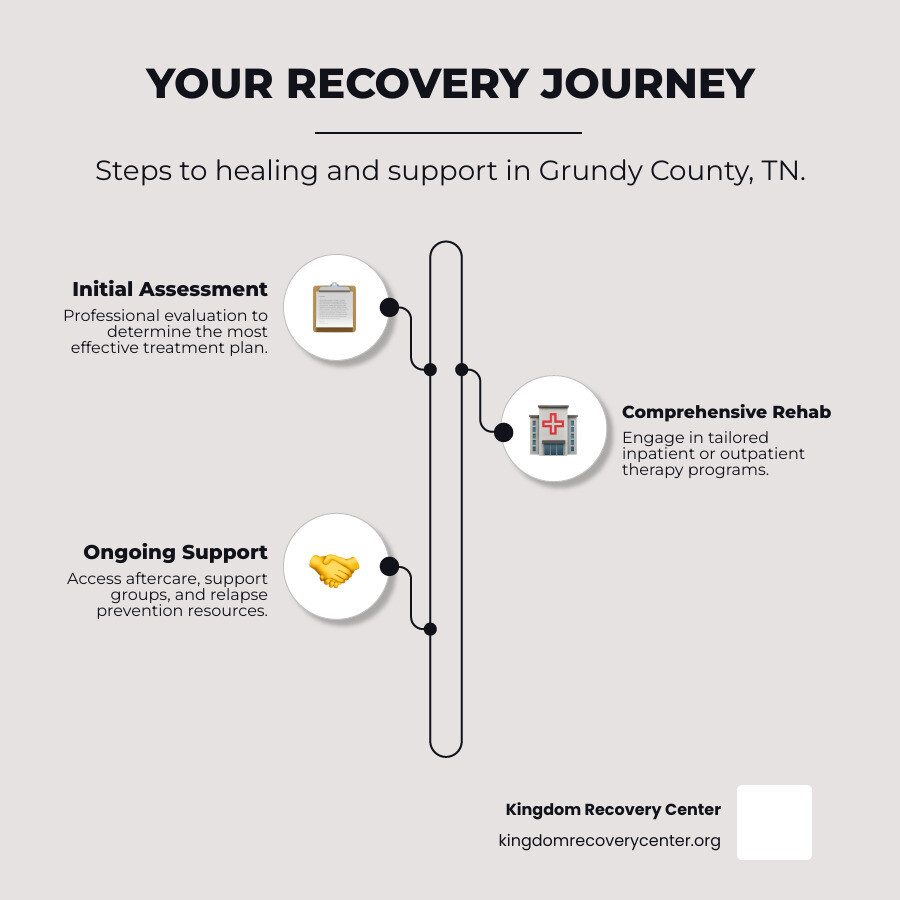
Exploring Mental Health & Addiction: Common Factors

Mental Health and Addiction: Exploring Their Interconnection and Treatment Options
Mental health and addiction are closely linked challenges that affect many individuals. This blog post explains the connection between mental health and addiction with a focus on dual diagnosis treatment at Kingdom Recovery Center. Readers will learn how to identify co-occurring disorders and explore effective treatment options for recovery. The content addresses common concerns and offers practical solutions, making it a valuable resource for those seeking help.
Key Takeaways
- dual diagnosis treatment addresses both mental health and substance misuse simultaneously
- comprehensive programs combine therapy, medication, and counseling for stable recovery
- early intervention supports long-term mental stability and improved recovery outcomes
- community resources and peer support enhance personalized treatment strategies
- tailored care plans help reduce relapse risks and manage daily challenges
Understanding the Interconnection Between Mental Health and Addiction

This section defines mental health conditions and addiction, discussing substance use disorders while noting how mental health challenges can foster a desire for substance use and serve as a risk factor. It reviews the adverse impact of addiction on mental well-being and references support groups like Narcotics Anonymous in the United States.
Defining Mental Health Conditions
Mental health conditions encompass a range of disorders, with research indicating that genetics can play a notable role in their development and persistence. Experts at institutions like American Addiction Centers stress the importance of considering biological predispositions alongside environmental factors to better understand the triggers that lead to issues such as panic and disruptions in daily functioning.
These conditions are further examined through the lens of social work, where professionals assess the broader impact on an individual’s pursuit of sobriety and overall life stability. Practical insights from the field emphasize that early recognition and intervention can help address both mental health challenges and the accompanying complications in a treatment environment.
Defining Addiction and Substance Use Disorders
Addiction and substance use disorders represent complex challenges that affect mental and physical health, often intertwining with conditions such as bipolar disorder and issues like impulsivity. Associations with health risks including hepatitis underscore the importance of timely, integrated care to address the full spectrum of symptoms while mitigating triggers that may contribute to domestic violence or sleep disturbances.
These disorders are marked by a recurring need to use substances despite harmful consequences, posing significant obstacles to recovery and daily function. Treatment approaches focus on comprehensive care plans that consider both mental imbalances and behavioral patterns, offering practical pathways to stabilize conditions and reduce the risks associated with impulsivity and the stressors that lead to domestic violence and disrupted sleep.
How Mental Health Disorders Can Lead to Substance Abuse
Mental health challenges can create conditions where individuals turn to substances as a temporary solution to alleviate emotional distress, potentially undermining abstinence and overall wellness. Professionals note that the affordable care act has increased opportunities for recovery programs that address both mental-health-iop-tennessee and addiction simultaneously.
Experiences in clinical settings indicate that unresolved mental disorders may escalate substance misuse, complicating recovery efforts and daily functioning:
- Increased reliance on substances to escape emotional pain
- Challenges in maintaining abstinence without integrated support
- Barriers to achieving wellness through fragmented care
Clinicians emphasize that coordinated treatment paths facilitate better recovery outcomes and encourage long-term mental stability.
The Impact of Addiction on Mental Health
Addiction adversely affects mental health by impairing cognition and exacerbating preexisting disorders, with some cases progressing to conditions that resemble early dementia. Experts in Oregon report that repeated substance misuse increases the severity of mental health challenges and requires targeted treatment strategies.
Specialized programs distinguish complex cases by addressing both addiction and underlying mental disorder symptoms simultaneously, offering actionable steps to improve overall well-being. Clinical observations confirm that comprehensive treatment programs enable individuals to regain stable cognition and promote lasting recovery.
Identifying Co-Occurring Disorders

This section outlines common challenges like depression and substance abuse, detailing diagnosis in primary care settings across California. It reviews signs of comorbidity, risk factors, and the process of diagnosing co-occurring disorders. The detailed discussion that follows offers practical insights into recognizing and managing dual conditions effectively.
Common Co-Occurring Disorders in Mental Health and Addiction
Co-occurring conditions in mental health and addiction often manifest as overlapping symptoms, including addictive behavior and mood disruptions that can affect employment. Peer support networks and internet resources serve as valuable tools in providing accessible information and fostering stability.
Clinical observations note that individuals experiencing these dual challenges may display signs such as fluctuating euphoria, dependence on substances, and difficulty sustaining daily responsibilities:
- Shifts in mood and behavior
- Struggles with maintaining steady employment
- Reliance on internet-based support
- Need for continuous peer support
These insights indicate a clear need for comprehensive, dual-focused treatment methods that address both mental health and addiction effectively.
Symptoms and Signs of Dual Diagnosis
The symptoms of dual diagnosis often include heightened anxiety, unpredictable mood shifts, and challenges in coping with daily stressors, which can affect an individual’s overall health and mental clarity. Professionals note that a careful review of a patient’s mental database can reveal subtle signs that specific patterns of behavior are interfering with the mind’s ability to function normally.
Observable changes in behavior, such as persistent feelings of depression or increased irritability, may signal that a dual diagnosis is present. Expertise in the field emphasizes that regular monitoring of both mental and physical health, along with practical coping strategies, can significantly improve the outlook for those affected.
Risk Factors for Developing Co-Occurring Disorders
Risk factors for developing co-occurring disorders include biological elements, environmental influences, and gaps in policy implementation that can leave at-risk individuals underserved. Multidisciplinary approaches such as contingency management provide practical support in addressing sud and alcohol-related challenges, reducing disease progression and supporting recovery:
| Risk Factor | Description |
|---|---|
| Genetics | Pre-existing biological factors that may predispose individuals to diseases affecting both mental health and addiction. |
| Policy Gaps | Lack of comprehensive health policies leads to fragmented care and increased risk of co-occurring disorders. |
| Environmental Stress | Stressful living conditions and peer environments that contribute to sud and alcohol misuse. |
| Contingency Management | Behavioral treatment approaches that help manage everyday challenges and promote recovery. |
Early interventions are crucial in managing the convergence of mental health challenges with substance use issues, where factors like untreated disease and limited contingency management strategies contribute to relapse risks. Professionals suggest reviewing existing policy frameworks and practical examples from successful rehabilitation programs to guide individuals through recovery from sud and alcohol misuse effectively.
Diagnosing Co-Occurring Disorders
Professionals diagnose co-occurring disorders through a meticulous process that often involves assessments conducted in a hospital setting where experts evaluate symptoms of conditions such as schizophrenia alongside addiction. These evaluations incorporate therapy sessions and support from community resources to guide individualized treatment plans that address the intertwining of mental health challenges and substance misuse.
Clinicians use targeted diagnostic tools and close observation to determine the presence of multiple disorders, ensuring that early intervention and comprehensive treatment are in place to improve recovery pathways. This approach benefits patients by fostering an environment where community support and regular therapy sessions are integral to managing complex cases and promoting long-term stability.
Effective Treatment Options for Co-Occurring Disorders

Research shows that integrated treatment approaches, psychotherapy and counseling techniques, medication management, and support groups are central to addressing co-occurring disorders. The patient benefits from coordinated care that reduces social stigma while breaking the habit of substance dependency, including opioid use disorder, through actionable strategies and practical community resources.
Integrated Treatment Approaches
Dual-focused programs advocate for integrated treatment approaches that combine therapy, medication, and tailored counseling to address both mental health and substance misuse issues. By utilizing solutions such as php treatment levels and stress management strategies, care providers promote motivation and attention to individual needs while monitoring risks like hepatitis b to safeguard overall health.
Clinical settings demonstrate that comprehensive care plans employing integrated methods yield measurable improvements in recovery outcomes. This model leverages practical insights to enhance motivation, ensuring that proper attention is given to stress management and potential complications, thus fostering a stable path toward recovery.
Psychotherapy and Counseling Techniques
Psychotherapy and counseling techniques offer a focused approach to managing stress, irritability, and substance use challenges, providing tailored strategies for individuals facing both mental health and addiction issues. Clinicians routinely incorporate methods that involve routine check-ins via email and personal sessions to track progress, ensuring that patients receive support that addresses each unique factor, including drug use and issues related to drink consumption.
These treatment sessions emphasize practical, actionable insights that help reduce daily stress triggers and improve overall stability. Therapists offer clear guidance on managing emotional responses and withdrawal symptoms, using a proven model that minimizes irritability and supports recovery by monitoring behavioral patterns and potential setbacks.
Medication Management
Medication management is an essential component in dual-focused treatment programs for mental health and addiction. A physician may recommend tailored dosages that work in tandem with regular exercise to support a balanced mood and reduce episodes of paranoia, ensuring that patients understand the impact of treatment on their overall recovery.
Effective medication management involves a careful review of treatment protocols alongside complementary therapies such as exercise routines and mood stabilization practices, with input from a physician familiar with the patient’s profile and health insurance benefits:
| Treatment Element | Explanation |
|---|---|
| Medication | Targeted prescriptions to support mental health stabilization and addiction recovery |
| Dosage | Controlled amounts adjusted to manage symptoms such as paranoia and mood fluctuations |
| Monitoring | Regular check-ins with a physician to assess progress and adjust treatment as needed |
| Benefits | Improved recovery outcomes and reduced risk of relapse, with support from health insurance |
Support Groups and Community Resources
Support groups and community resources play a critical role in lifestyle modifications and management for individuals facing mental health and addiction challenges. They offer a structured environment that stimulates improvements in quality of life while assisting those who struggle with conditions like mania and other behavioral issues:
- Structured peer support sessions
- Health care referrals and tailored management strategies
- Access to community-based counseling and educational programs
Community resources complement formal treatment by providing actionable insights and practical advice from trusted professionals, promoting effective management of both mental health and addiction. This comprehensive approach aims to boost overall quality of life and stability, significantly aiding in lifestyle enhancements through ongoing support and expert health care guidance.
Strategies for Mental Health and Addiction Recovery

Effective recovery strategies combine building a support system, developing coping skills, relapse prevention techniques, and holistic approaches. Health professionals in Los Angeles emphasize meditation, care for hepatitis c patients, and careful management of drug withdrawal. The following sections outline practical steps that promote stability and progress for individuals seeking integrated recovery solutions.
Building a Support System
Establishing a strong support system is vital for individuals dealing with substance abuse and seeking recovery. Professionals recommend incorporating assertive community treatment models as a means to connect patients with essential resources such as medication management and smart recovery programs, all while ensuring that health insurance is leveraged for comprehensive care.
A robust support network can significantly improve the recovery process by addressing both mental health and addiction challenges. Experts advise that patients benefit from consistent guidance through support groups and assertive community treatment, which provide actionable insights to manage substance abuse and facilitate effective use of medication, fostering a stable path toward recovery with the help of available insurance options.
Developing Coping Skills
The development of coping skills is vital for effective suicide prevention and management of mental health challenges. Professionals emphasize strategies that support brain health and reduce fear, using focused evaluation techniques to help individuals understand and mitigate suicidal ideation.
Targeted coping methods empower individuals to tackle stressors and maintain mental stability:
- Structured stress management routines
- Practical evaluation sessions to assess mental state
- Actionable steps to address fear and suicidal ideation
Implementing these techniques offers a clear pathway toward enhanced mental well-being and substance recovery.
Relapse Prevention Techniques
Relapse prevention techniques assist individuals in managing behavioral triggers and reducing the risk of returning to substance use by integrating practical strategies that support memory improvement and stress management. Expert clinicians emphasize learning through structured sessions and coaching to help patients address issues such as insomnia and erratic behavior with actionable steps:
| Focus Area | Action Steps |
|---|---|
| Risk Management | Regular assessments to identify potential triggers. |
| Learning | Continuous education and skill-building sessions. |
| Insomnia | Establishing a healthy sleep routine and consultation. |
| Memory | Cognitive exercises designed to enhance retention and focus. |
| Behavior | Monitoring and modifying habits to foster positive change. |
Specialized programs emphasize the integration of coping strategies by encouraging continuous learning processes and establishing clear routines to address risk and improve memory function, which are essential for recovery. The approach supports improved behavior through practical techniques that help individuals manage insomnia and other challenges effectively.
Holistic Approaches to Recovery
Holistic approaches to recovery at the clinic integrate wellness practices that help counter the prevalence of methamphetamine use and manage relapse by teaching vital skills to overcome peer pressure and other triggers:
- Mindfulness training to improve self-awareness
- Structured physical activity to support mental clarity
- Nutritional counseling for sustained energy and balance
The clinic offers a coordinated strategy that combines personalized therapy with group support, addressing both physical and emotional aspects of recovery. This method provides actionable insights that equip individuals with strategies to diminish relapse risks and better manage peer pressure while navigating the challenges of addiction.
Accessing Dual Diagnosis Treatment Centers

The section outlines key aspects for accessing dual diagnosis treatment centers. It covers what to look for in a treatment center, understanding insurance coverage, and preparing for treatment through effective screening. This overview offers practical insights to help individuals make informed decisions and seamlessly transition into detailed guidance on each topic.
What to Look for in a Treatment Center
The treatment center should offer comprehensive care plans that address both mental health issues and substance use challenges. It must display credentialed staff, verified certifications, and robust dual diagnosis programs that combine therapeutic counseling with medication management to ensure an effective recovery journey:
| Essential Factor | Description |
|---|---|
| Accreditation | Verified certification that assures compliance with industry standards. |
| Integrated Services | Programs that simultaneously address mental health and addiction through targeted strategies. |
| Personalized Treatment | Customized care plans designed to meet individual recovery needs. |
Potential patients benefit from facilities that offer clear policies, ongoing support services, and consistent monitoring of progress. The center should serve as a reliable resource by addressing individual concerns with actionable insights and providing clear guidance throughout the treatment process.
Understanding Insurance Coverage for Treatment
Understanding insurance coverage for treatment is a vital step in securing dual diagnosis services for mental health and addiction. Industry professionals note that clear communication with insurance providers can help determine benefits and reduce out-of-pocket costs, ensuring that individuals receive the comprehensive care they need.
Insurance plans often include varied coverage limits and pre-authorization requirements for integrated treatment services, which may include medication management and counseling sessions:
| Coverage Element | Description |
|---|---|
| Pre-Authorization | Necessary approval from insurance providers for treatment services. |
| Coverage Limits | Defined monetary limits on the benefits provided. |
| Integrated Services | Programs designed to address both mental health and addiction concurrently. |
Insurance experts advise reviewing policy details carefully to ensure that each element aligns with the requirements of dual diagnosis treatment centers.
Preparing for Treatment
Potential patients are advised to prepare for treatment by reviewing all their medical records and recent assessments to ensure accurate documentation of their mental health and substance use history. This proactive approach enables treatment centers to design tailored programs that address dual diagnosis effectively.
During preparation, individuals should consult with healthcare providers to discuss medication protocols and therapy options that fit their specific needs. Clarity in discussing treatment goals helps these centers deliver coordinated care that fosters stability and long-term recovery.
Personal Stories of Recovery and Hope

This section highlights inspiring recovery journeys, the role of family and community support, and methods for overcoming stigma related to mental health and addiction. It connects these topics to efforts in awareness and advocacy, providing practical insights from real-life experiences and emphasizing the value of integrated treatment. Each topic offers clear guidance for improved well-being and recovery.
Inspiring Recovery Journeys
Individual recovery journeys showcase how dedicated treatment programs can address both mental health issues and substance abuse. Real-life examples reveal that personalized dual diagnosis care enables individuals to achieve stable progress, effectively improving their outlook on recovery and overall well-being.
These inspiring stories highlight the practical benefits of integrated treatment options in addressing the complex challenges of mental health and addiction. Demonstrated success in recovery emphasizes that carefully designed programs can offer hope and support, guiding patients toward a sustainable path to healing and self-improvement.
The Role of Family and Community
Family members provide essential support in every step of the recovery process by encouraging open communication and reinforcing the importance of integrated treatment strategies. Their active involvement creates a structured environment that fosters healing and reduces challenges associated with mental health and addiction:
- Regular family meetings to review progress
- Collaborative decision-making with treatment providers
- Emotional support during setbacks
Community networks also play a crucial role by offering resources and establishing local support groups that address the unique needs of individuals undergoing dual diagnosis treatment. These networks improve access to care by connecting patients with local experts and specialized programs, thereby promoting sustainable recovery outcomes.
Overcoming Stigma Surrounding Mental Health and Addiction
The stigma surrounding mental health and addiction continues to hinder recovery efforts. Recognizing the impact of negative labels has prompted numerous care providers to adopt strategies that promote open communication and respect for every patient in dual diagnosis programs:
| Key Element | Practical Example |
|---|---|
| Open Dialogue | Community sessions encourage sharing experiences without judgment. |
| Peer Support | Support groups offer safe spaces for discussing recovery challenges. |
Integrated treatment centers demonstrate commitment to reducing stigma by combining mental health and addiction services in one setting. Clinicians cite success stories that illustrate how clear communication and compassionate care can restore dignity and provide meaningful recovery outcomes for individuals facing dual diagnosis challenges.
Contributing to Awareness and Advocacy
The focus on awareness and advocacy plays a crucial role in supporting integrated treatment approaches for both mental health challenges and addiction. Practitioners consistently stress the importance of sharing personal recovery journeys to reduce stigma, improve community support, and guide individuals toward effective dual diagnosis treatment options.
Expert clinicians actively encourage contributions to public discussions on mental health and addiction to promote understanding and collaborative care. Their commitment to advocacy fosters an informed community that values comprehensive treatment initiatives and ensures that individuals facing complex challenges have access to the necessary resources for recovery.
Conclusion
Integrated treatment of mental health challenges and substance misuse offers a comprehensive path for those facing dual diagnosis. Coordinated care that addresses both issues simultaneously promotes long-term stability and recovery. Structured support systems, targeted therapies, and ongoing monitoring empower individuals to manage symptoms effectively. A focused approach to dual diagnosis treatment reinforces the value of addressing these interconnected challenges together for improved overall well-being.



